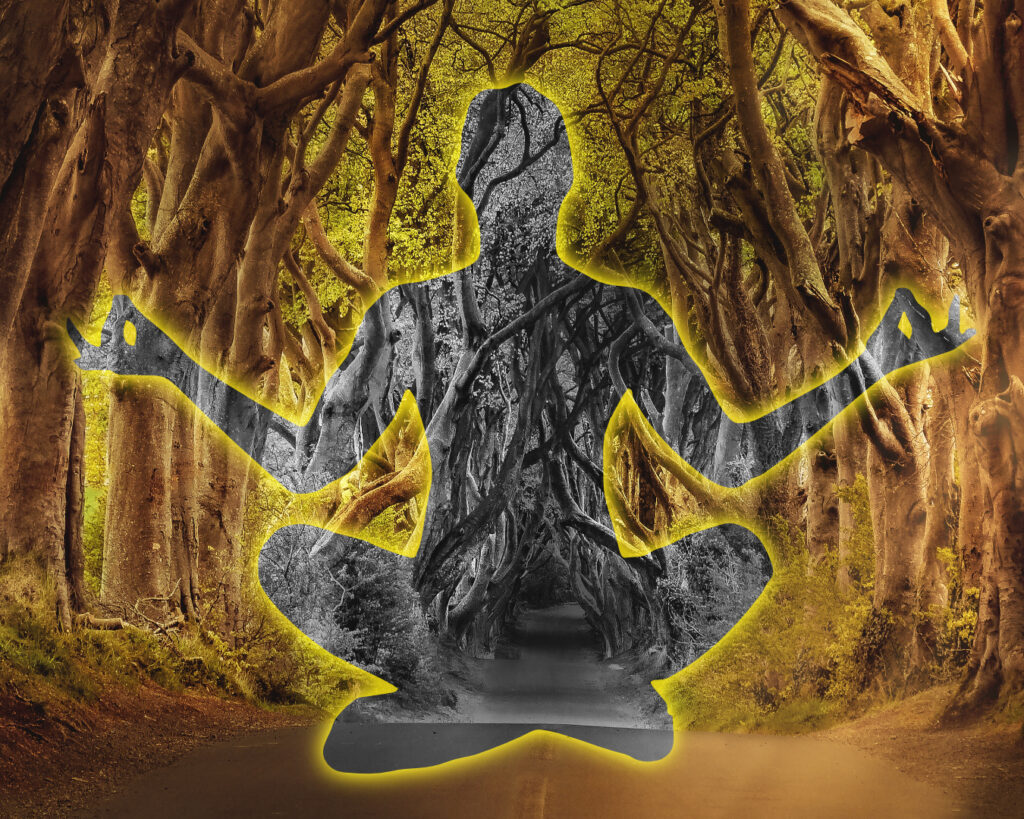There is a little corner of philosophical inquiry that asks whether knowledge is justified based on all our other knowledge. This epistemological foundationalism rests on the concept that if we keep finding justifications for things we can literally get to the bottom of it all. So, for instance, if we ask why we think there is a planet called Earth, we can find reasons for that belief that go beyond just “’cause I know!” like “I sense the ground beneath my feet” and “I’ve learned empirically-verified facts about the planet during my education that have been validated by space missions.” Then, in turn, we need to justify the idea that empiricism is a valid way of attaining knowledge with something like, “It’s shown to be reliable over time.” This idea of reliability is certainly changing and variable, however, since scientific insights and theories have varied, depending on the domain in question and timeframe. And why should we in fact value our senses as being reliable (or mostly reliable) given what we know about hallucinations, apophenia, and optical illusions?
There is also a curious argument in philosophy that parallels this skepticism about the reliability of our perceptions, reason, and the “warrants” for our beliefs called the Evolutionary Argument Against Naturalism (EAAN). I’ve previously discussed some aspects of EAAN, but it is, amazingly, still discussed in academic circles. In a nutshell it asserts that our reliable reasoning can’t be evolved because evolution does not reliably deliver good, truthful ways of thinking about the world.
While it may seem obvious that the evolutionary algorithm does not deliver or guarantee completely reliable facilities for discerning true things from false things, the notion of epistemological pragmatism is a direct parallel to evolutionary search (as Fitelson and Sober hint). A species or genetic lineage achieves reliable fit to its adaptive landscape. This reliable fit can obviously include creating reliable predictive models of the temporal behavior of the landscape. The probability of a poor fit becomes zero in the limit because all alternative paths through the state space that are accessible to genetic variability have been attempted and failed. We might call this “survivorship reliability.” In a similar manner, consider the example of a blind man on a mountain trying to escape back to civilization adapted from Reichenbach via Enoch and Schechter: he has no choice but to feel along what appears to be a trail. It may lead over a cliff. It may lead down to safety. But the only way out of the wilderness is to make a best guess and proceed. In this analogy, we see knowledge forming based on a pragmatic requirement of survival, just like the evolutionary search through the adaptive landscape. The knowledge acquired has a high probability of becoming increasingly reliable and the warrant for justification emerges directly from this pragmatic engagement: thus we rely on inference to the best explanation or Modus Ponens and lean into them because we have no choice.
I think this applies to creative enterprises. There is a feeling of creativity as having a degree of chaos to it. Not randomness, per se, but more of a channeled and chaotic merger of thoughts and ideas. We collect those bits together and some are dead ends due to lack of innovation or challenges to acquiring the necessary background information or materials for producing a work. I’d like to float a clown balloon over America and have it create collages of top secret facilities reorganized into the shape of clown faces, but I am blocked by the physical difficulty of doing so. I want to write about French Indochina in the 17th century but the effort to achieve verisimilitude for the era is too daunting. But I can invent other narratives in places, times, and futures that just need enough realistic structure that they are interesting to me and others. The ideas that remain have survivorship reliability from having stochastically followed multiple paths and finally fit together into a coherent whole.
I would complain that the theists who promote ideas like EAAN should have understood this about evolution-style algorithms and how pervasive they are, but this too is a an ongoing optimization of our collective knowledge, with the limits and successes piling up around us, holding contingently as reliable conclusions, then refining again against a pragmatic backdrop of what is and is not reliable, successful, and novel.
